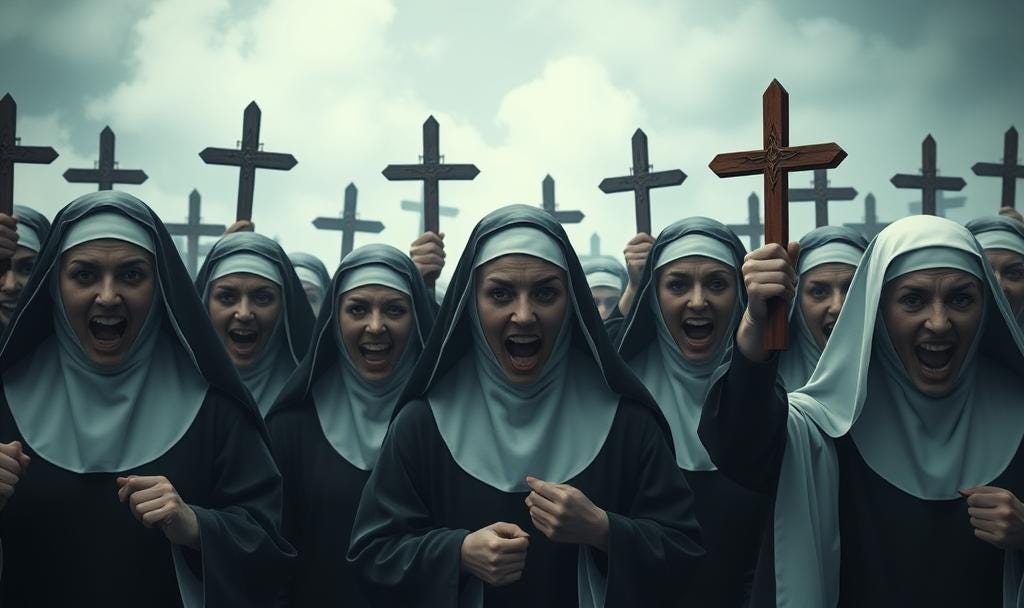Not content with spending Easter in Britain (including a meet-up with an old buddy I used to play in a band with many years ago, who’s also connected to the world of publishing - hopefully, more on that subject in future), it’s Koningsdag.
King’s day. A simple enough idea - using the King’s birthday as an excuse for a party - but in the hands of the Dutch, an exercise in excess that’s unrivalled the world over. Last night, the TV relayed a message from the mayor of Utrecht, aimed at people thinking of visiting the vrijmarkt - the huge open-air bric-a-brac sale that’s a fixture of the festivities: don’t come here. The streets are already full.
And then, there’s Amsterdam. The place where Lando Norris came to party, and went away with the bandages to prove it, vis:
Even years ago, in the 90s (when we had a Queen and the event was called Koninginnedag), I remember jam-packed streets and a band playing on every corner. A party that continues all night, then walking home - having lost all track of time and toasted the sunrise with a bunch of strangers - wading through a 30cm-deep layer of beer cans.
This year, a bit of a different atmosphere, what with the Pope’s funeral on TV and world leaders with dour expressions, as if to remind us all of the problems they’ve caused. I think we know what Francis thought of each of them. But that thought – the idea of not being in a party mood in the middle of the world’s biggest party – leads us to the subject of prologues.
In a roundabout way, of course (why else do you come here?). Prologues get something of a bad rap in the literary world these days, the reasoning being that if you need to show an intro or a setting before the story starts, you’re starting the story in the wrong place.
Of course, that’s not the only possibility. Another favourite use for a prologue is as a flash-forward – giving us a hint of what’s coming up – our protagonist teetering on a window ledge with a baying mob of Albanian nuns calling for him to jump to his death in the square below, for example – and leaving us wondering what possible sequence of mischance could have led us here. (If you like the nun-thriller concept, let me know. The movie rights are still available.)
This also has its problems, of course. In particular, that an action scene plucked from later in the novel could be a cheap way of covering up the fact that the first fifty pages are as dull as ditchwater. (Our protagonist spends weeks reading holiday brochures, thinking of all the reasons why he doesn’t fancy Marbella, etc. Only in chapter ten does a chance encounter at the bus stop set him thinking about exploring Europe country by country in alphabetical order. I know. It’s got Oscar-potential written all over it.)
This may or may not have been the reason I cut this following piece from the start of Future Echoes. The original idea – where we meet our protagonist as a fifteen-year-old boy, dealing with adolescent angst and puzzling memories that appear to be of events from the future – eventually carried the day, with the proviso that people (literary agents) have warned that it sounds like a YA story. (It’s about a teenager, so it must be for teenagers? Possibly. But again, not the only possibility.)
But the idea that we flip forward ten years and start at the point of maximum tension, when life has led him a merry dance but he still hasn’t met that elusive somebody he remembered from an uncertainly-recalled future… well, it still sounds fresh to me. See what you think.
Koninginnedag, 1991
Queen’s Day again, and as always, the entire city was consumed by a riotous orange-themed party. Every thronging street, every flag-lined canal. Every hard-core techno fan, waltzing pensioner, and dazed tourist.
Everyone, except Stephen.
A normal person would enjoy a day like this.
A clink of glasses and a babble of laughter burst in from outside. He turned, to watch a tour boat full of drunken revellers passing by the rococo picture window of his front room, rippling the oily grey-green water of the Prinsengracht.
Damn. This wasn’t just any random celebration, but an important date on the calendar. A day he should be sharing with her.
Of course he’d tried to join the festivities, trailing around the bric-a-brac stalls of the vrijmarkt like an uninvited guest, but just didn’t have it in him. Now here he was, alone, taunted by the ebb and flow of a distant pulsing dance beat, watching the water casting iridescent amber reflections from the streetlights.
Was he stuck with this forever? He’d changed the course of his life to be in this vibrant European capital, just so he could find her. Years spent seeking his fortune, yes, but more than that: preparing. Laying the foundations. It was all going to happen, the way the future had shown him. Life would get started once they’d met. Only, half his twenties had passed — important years he’d never get back — and there was no sign of her.
His life amounted to nothing. Baubles and glitter. Worthless.
What was it, this obsession? The manifestation of an abnormal personality? A mental illness? How absurd, in retrospect, like looking down the wrong end of a telescope. Had it all been a hopeless fantasy, right from the beginning, in 1982?
From the moment he took the dog for a walk, and saw the newspaper?







Ah, so you’re also in the Netherlands! 🇳🇱 gezellig, he?
Yes, Uncle Roger...
apparently the Parisians were so thrilled and grateful that they kept climbing on to the tank, and several young women showed their gratitude by flinging themselves at the soldiers inside. But Uncle Roger missed out on this: he confided to my brother - not to me, of course! - that he couldn't join in the Bacchanal as he had to keep driving the tank!
Your grandfather had a good war too - it must have been horrifying being surrounded by starving people, but at least he was able to do what he could to help them. War, eh.